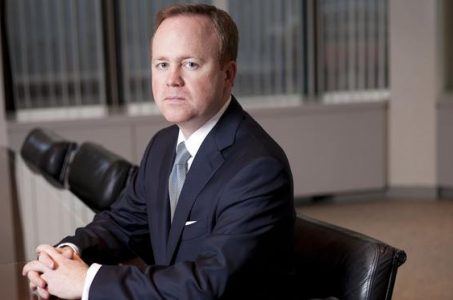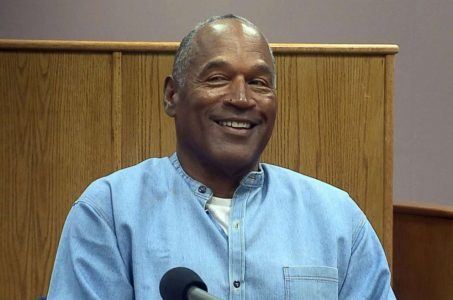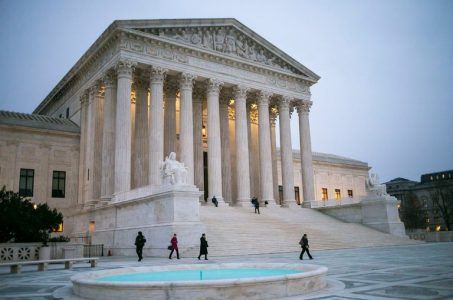Are Three Professional Sports Commissioners Secretly Hoping to Lose PASPA Supreme Court Case?
Posted on: November 28, 2017, 06:00h.
Last updated on: November 28, 2017, 02:40h.
Three of the four major professional sports leagues, the NBA, NHL, and MLB, are led by commissioners who might support changing America’s sports betting laws. That’s a rather precarious position ahead of their Dec. 4 Supreme Court hearing where attorneys for their organizations, plus the NFL and NCAA, will argue in favor of the current prohibition.

On Monday, the high court will hear testimony on whether or not the Professional and Amateur Sports Protection Act of 1992 (PASPA) violates states’ rights and the 10th Amendment. New Jersey says it does, with lawyers arguing that the federal government cannot enforce one state to adhere to a law while allowing another to not.
PASPA provided grandfathered immunity for Nevada, Oregon, Montana, and Delaware when it was passed, as those four states had some sort of legalized sports wagering at the time. To this day, only Nevada has full-fledged casino sportsbetting.
In a statement to the Associated Press this week, American Gaming Association CEO Geoff Freeman explained that the leagues understand that public opinion is tilting in favor of a sportsbetting overhaul. If they were not, the NFL and NHL wouldn’t be locating teams in Las Vegas, and the commissioners for the NBA and MLB wouldn’t be stating publicly that they believe legalization could benefit their leagues.
Commissioners Softening
Aside from NFL Commissioner Roger Goodell, the NBA’s Adam Silver, MLB’s Rob Manfred, and NHL’s Gary Bettman have all come out in support of a PASPA review.
NBA Commissioner Silver said over the summer, “My sense is the law will change in the next few years. People want to bet throughout the game. It results in enormous additional engagement with the fans.”
In a 2014 New York Times op-ed, Silver became the first major US professional sports commissioner to embrace a PASPA overhaul. “I believe that sports betting should be brought out of the underground and into the sunlight where it can be appropriately monitored,” Silver concluded.
Silver isn’t alone. In 2015, Manfred altered MLB’s longstanding opposition to sports betting. And in July, he further explained that baseball is better off with regulated wagering, as compared to its current unregulated capacity.
Bettman, the aptly named NHL boss, said sports gambling is irrelevant to his sport, as he claims hockey fans are far more interested in what’s happening on the ice than at the sportsbook. He added that he didn’t see how gambling on the NHL could jeopardize the integrity of hockey games, a common argument made by Goodell and the NCAA, long before it became clear how online betting could help identify on-field dishonesty.
The ongoing remarks are why AP sports writer Ben Nuckols opined this week that “leaders of three of the four leagues have made public comments that suggest they wouldn’t mind losing the case.”
Sure Thing, Win or Lose?
On Monday, New Jersey will make its case versus the NCAA and four professional sports leagues. Justices also will hear testimony from the Office of the US Solicitor General. The Supreme Court is expected to issue its ruling sometime between April and June.
Should the verdict come down in New Jersey’s favor, as many as 20 states could have legal sports betting by 2025, an analysis by Gambling Compliance suggested. That untapped market would generate anywhere from $2 billion to $5.8 billion in annual gross gaming revenue upon market maturity, GC found.
That’s why even Nevada’s casino industry largely backs the repeal of PASPA, as sports gaming operations could expand to hundreds of casinos across the US.
Fans who place a financial incentive on a game’s outcome have also been proven to watch more events. A Nielsen Sports study in 2016 found that those who bet on the NFL watch 19 more regular season games than fans who don’t.
Related News Articles
Most Popular
VEGAS MYTHS BUSTED: Golden Gate is the Oldest Casino in Vegas
Las Vegas Overstated F1 Race’s Vegas Impact — Report
Most Commented
-
End of the Line for Las Vegas Monorail
— April 5, 2024 — 90 Comments -
Mega Millions Reportedly Mulling Substantial Ticket Price Increase
— April 16, 2024 — 6 Comments
















No comments yet